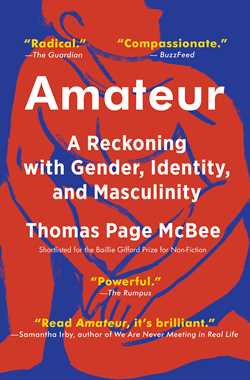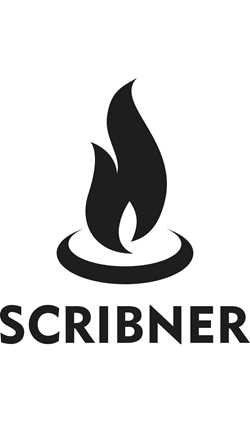|  | |
| | | | | | | | | | | | | Category 3 | Biography & Autobiography |
| | | | Territory | US, Canada, Open Market |
|
| |
|
| |
|
| Thomas Page McBee, Author |
| | |
| |  | About the BookOther FormatsProduct Images In this “refreshing and radical” (The Guardian) narrative, Thomas McBee, a trans man, sets out to uncover what makes a man—and what being a “good” man even means—through his experience training for and fighting in a charity boxing match at Madison Square Garden. A self-described “amateur” at masculinity, McBee embarks on a wide-ranging exploration of gender in society, examining sexism, toxic masculinity, and privilege. As he questions the limitations of gender roles and the roots of masculine aggression, he finds intimacy, hope, and even love in the experience of boxing and in his role as a man in the world. Despite personal history and cultural expectations, “Amateur is a reminder that the individual can still come forward and fight” (The A.V. Club).
“Sharp and precise, open and honest,” (Women’s Review of Books), McBee’s writing asks questions “relevant to all people, trans or not” (New York Newsday). Through interviews with experts in neuroscience, sociology, and critical race theory, he constructs a deft and thoughtful examination of the role of men in contemporary society. Amateur is a graceful and uncompromising look at gender by a fearless, fiercely honest writer.
|
| "Brave, honest and touchingly human…a beautiful book that will resonate…with anyone anywhere in the world who is determined to become a better, kinder human being.”
—The Guardian, The Book That Changed My Mind
"There have been a slew of new books that have reckoned powerfully with manhood and masculinity and their intersections with race and sexuality. Among the best I’d rank How to Write an Autobiographical Novel, by Alexander Chee, Air Traffic, by Gregory Pardlo, Amateur, by Thomas Page McBee, and Heavy, by Kiese Laymon. They are very different books, but all exhibit the two qualities that Orwell said made him a writer: “a facility with words and a power of facing unpleasant facts.”"
—The New York Times
"In an age when identity feels so splintered and fractional, McBee’s empathy with men feels refreshing, but it’s his determination to be accountable that is radical. He resolves his own masculinity crisis by doing the things men often think they’re doing, but so often are not: listening, asking questions, seeking help, being vulnerable."
—The Guardian
"This book relays a subtle, profound personal investigation into masculinity and personhood ... McBee’s great twist is to treat masculinity itself as an anthropological phenomenon, represented by this bloody, extreme sport. Inside the fight, McBee finds reconciliation."
—The New Republic
"A compelling example of humanity at its best, one to which anyone with a heart and a mind will relate."
—Western Humanities Review
"A no-holds-barred examination of masculinity. McBee describes the journey as a way of grappling with his newish place in the world of toxic (and privileged) masculinity ... a compassionate look at what it means to be a man and the circumstances that have engendered our expectations. It is in many ways a happy dismantling of these expectations, an opening of masculinity to make room for love, support, and tenderness — something McBee is pleasantly surprised to find along the way."
—Buzzfeed
"Thomas Page McBee’s new memoir, Amateur, is a powerful exploration of the costs of toxic masculinity and the joys of an authentic life. It is also a classic fight story. Superbly written and keenly observed, Amateur manages to juggle all of these elements with grace and wit."
—The Rumpus
"McBee is consistently vulnerable—both physically and in how he shares his experience. Yet at the end of Amateur, after all the punches, interviews, and introspection, the author does not arrive at any simple answers. Instead, that initial question about men and fighting multiplies into larger ones ... While he gets closer and closer to that eventual fight night in New York, his investigation of men is made more powerful by this lack of certainty—ultimately asking whether anyone, including those who flaunt their political strength in Washington D.C., truly comprehends the meaning of masculinity."
—Bitch Magazine
"[McBee's] writing asks questions about gender that he believes are relevant to all people, trans or not ... [Amateur] probes the culture (or cult) of masculinity through, among other things, his experience as the first trans man to enter the boxing ring at Madison Square Garden, where he competed in a 2015 charity event when he was 34."
—Newsday
"Elegantly demonstrate[s] how men can fight for a better definition of manhood—one that includes vulnerability, empathy, and self-expression—simply by fighting to be themselves ... [McBee] finds the answer not in knocking out another man’s mouthguard, but rather in moments of vulnerability and the nurturing gestures of other men."
—Quartz
"The hot center of this book, the new work that it does, is McBee’s search to identify and adopt ways to be a “better” man. He wants to know, as a man, how to fight gender inequity ... At a time when equity of all kinds is being suppressed, Amateur is a reminder that the individual can still come forward and fight."
—The A.V. Club
"Amateur is Thomas Page McBee’s poetic exploration of (sometimes toxic) masculinity as he trained to become the first trans man to box in Madison Square Garden. Author of the award-winning memoir Man Alive, McBee expected men drawn to boxing were motivated by bloodlust. Instead, he discovers mentorship among men overcoming weaknesses. In finding the vulnerability guys hope to hide, McBee finds hope for all men."
—The Advocate
|
| Thomas Page McBee was the first transgender man to ever box in Madison Square Garden. He is the author of Amateur and an award-winning memoir, Man Alive: A True Story of Violence, Forgiveness, and Becoming a Man, which was named a best book of 2014 by NPR Books, BuzzFeed, Kirkus Reviews, and Publishers Weekly. Thomas’s writing has appeared in The Rumpus, Pacific Standard, The New York Times, Playboy, and Glamour.
|
|
|
| |